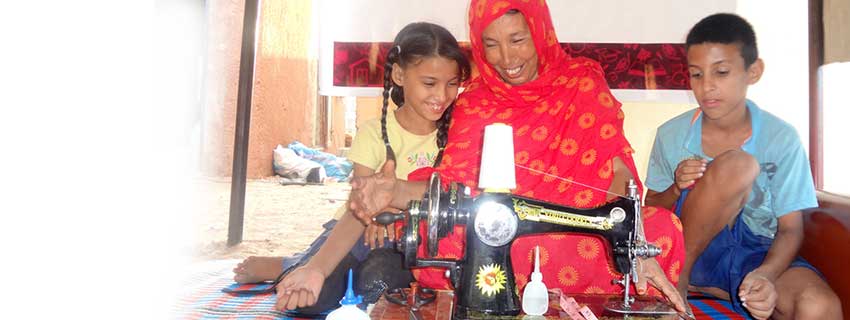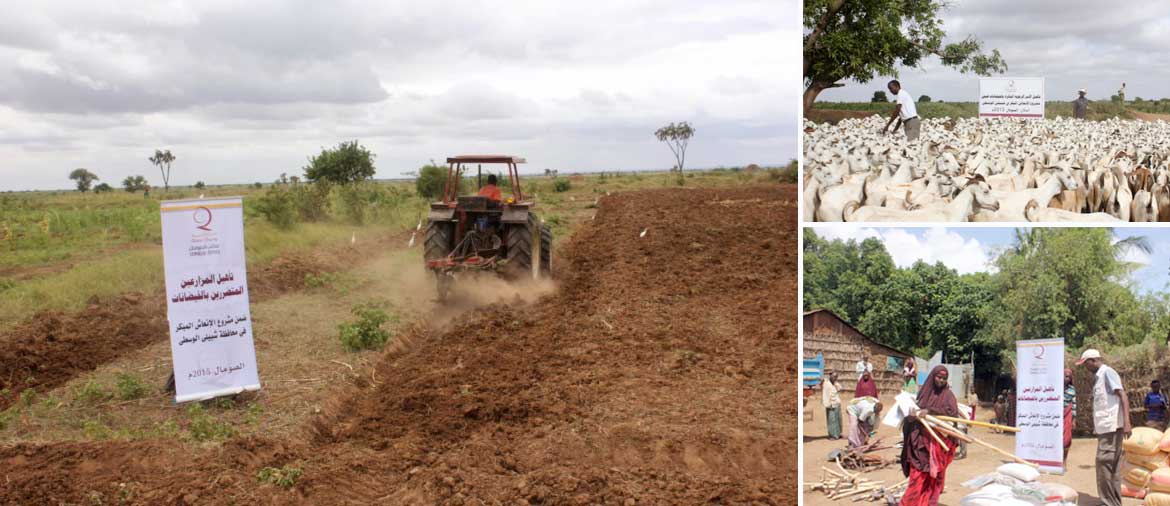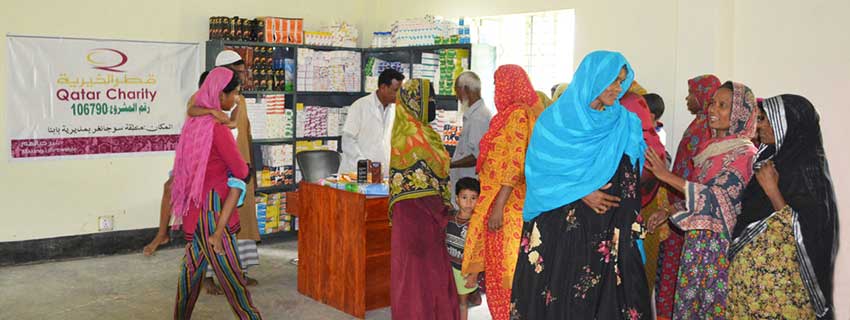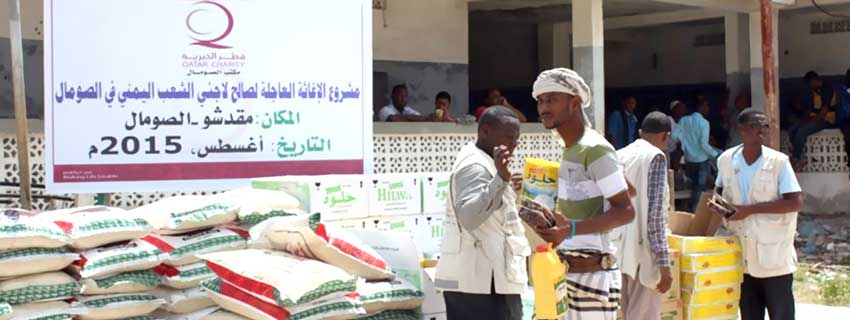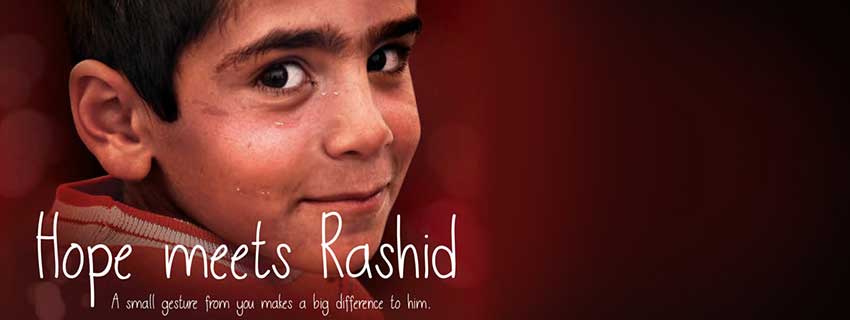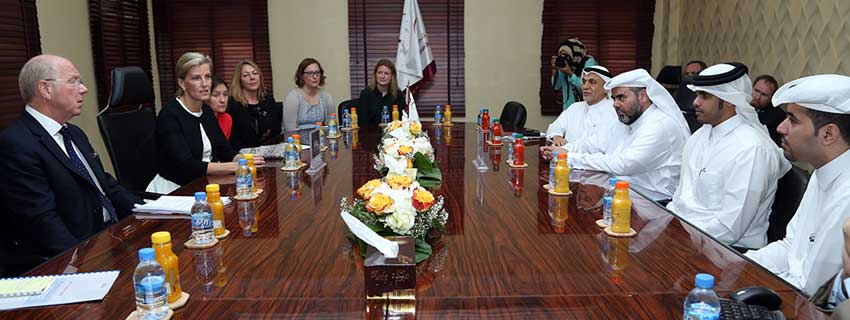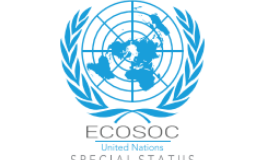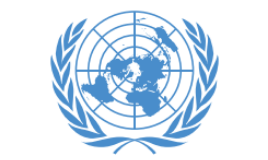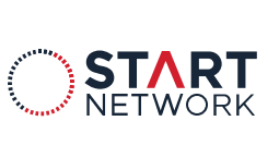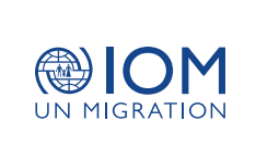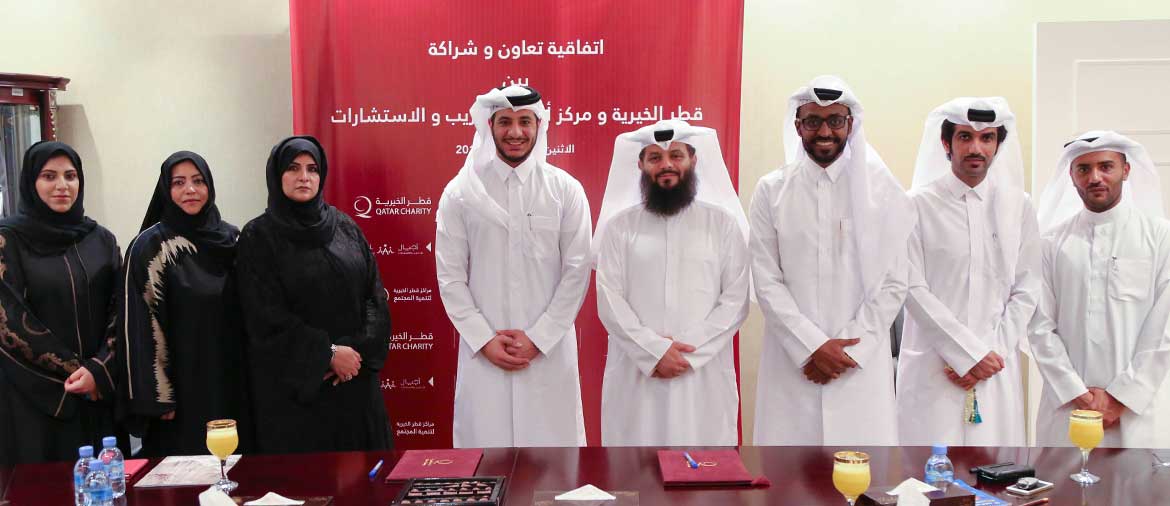
QC signed a cooperation agreement with Ajyal Center for Training and Consultancy through which QC’s administration of developmental centers and Ajyal Center would cooperate to offer developmental and social services to the society by organizing activities, events and different programs, and holding training and educational courses.
Mr. Abdul Nasser Al-Zahr Al-Yafi’ee, QC’s Executive Director of Local Development, and Mis. Ghada Ayoush, the Director General of Ajyal Center for Training and Consulting, signed the agreement in Qatar’s office in Duhail.
The signed cooperation agreement stipulates that both parties shall cooperate by sharing their experiences and potentials in the field of developmental and social services so as to provide distinguished community service. They also agreed on mutual coordination to hold several purposeful activities and developmental programs.
Mobilizing Efforts
Mr. Abdul Nasser Az-Zahr Al-Yafi’ee, QC’s Executive Director of Local Development, said that this is part of QC’s efforts to support developmental work; that is related to training and expertise improvement. The goal is to make a quantum leap in that field. He pointed out to the big efforts which must be exerted in order to overcome a lot of obstacles.
Al-Yafi’ee also added that through this agreement with ‘Ajyal’ Center, QC is trying to mobilize all the efforts to achieve the desired goals. The two parties agreed to work together in every possible way to serve all the developmental projects to serve the Qatari society.
Mr. Al-Yafi’ee expressed his gratitude to Ajyal Center for Training and Consultancy for its participation in the development process. He also emphasized QC’s willingness to cooperate and help in developing Qatar to see the Qatari 2030 vision come true.
Capacity Building
Ms. Ghada Ayoush, Director General of Ajyal Center for Training and Consulting, sincerely thanked QC and its staff members. She said that ‘Ajyal’ Center believes in training the Qataris to become leaders and to improve their skills. It also aims at achieving its goal of empowering the Qatari pepole so as to bring the Qatari 2030 vision to become a reality. Finally, as part of the center’s efforts to make real partnerships with local institutions, it welcomed the implementation of such initiative with QC; the international and local pioneering charity, which the center shares so many objectives.
Ayoush added that this agreement would be the beginning of cooperation between QC and ‘Ajyal’; such cooperation will create something creatively new that will keep up with the modern challenges. “We aspire to invest this agreement in mobilizing efforts to increase the knowledge of the members of the society and to increase their cultural understanding. With the help of training experts, we will make several activities and awareness programs through scientific and educational methodology. Our priority is to reinforce the values of the youths. We will do everything we can to achieve this goal. We will actively and seriously work with QC to identify our general goals and plan the way we are going to achieve them.”
Purposeful Agreements
QC had already signed an agreement with Tomooh for Voluntary Work Management in order to present a distinguished social work.
In addition, a number of agreements were signed with famous sport figures and journalists so as to be the ambassadors of good values.
In its headquarter in Doha, QC also signed cooperation, educational sponsorships, and voluntary initiatives agreements with educational centers and youth and voluntary institutions. They all aimed at serving the society and encouraging the Qatari youth to do voluntary work. For example, they inaugurated initiatives such as Salati (my prayer), Al-Majales Madares (sessions are like schools), and Suhba (companionship). QC also signed an agreement with ‘Layan’ campaign to relieve the Syrian refugees in Lebanon, and another agreement with ‘Rowad’ center. These agreements include the implementation of projects and developmental and educational programs inside Qatar and voluntary and relief campaigns outside Qatar.
